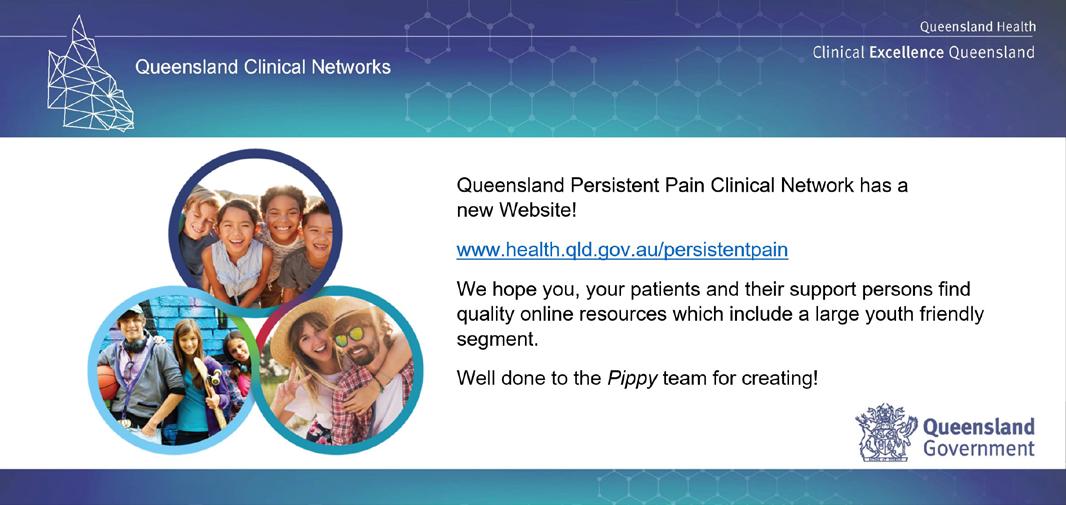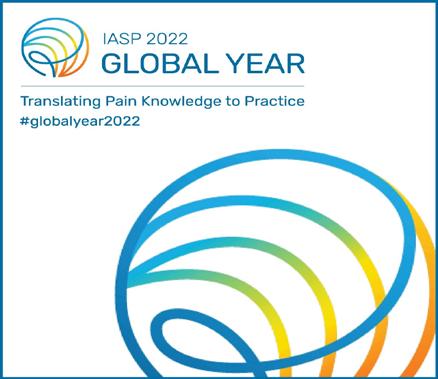
3 minute read
BPR Pain Hour:
from APS OCT22 eNews
by auspainsoc
Evidence-based practice and the contribution of preclinical research in managing dental and craniofacial pain
12-1pm AEDT, Wednesday 19 October 2022 (via Zoom)
The purpose of our Basic Pain Research Special Interest Group (BPR SIG) is to share, improve and promote scientific knowledge and understanding of the mechanisms of nociception and pain across all levels of investigation, from molecular and cellular analyses to pre-clinical or clinical studies.
This forum will provide an informal platform to promote and share our research and insights, from ECRs (including students) and senior colleagues.
Session 5: Evidence-based practice and the contribution of preclinical research in managing dental and craniofacial pain.
Summary:
This session will consider how preclinical research evidence can inform practice. This BPR Pain Hour brings together both a well-known and senior scientist, and an early career clinical researcher, with significant interest in evidence-based practice. Professor Barry Sessle has published widely in the field of animal and human basic science pain research and will provide an overview of how this has informed the diagnosis and management of dental and craniofacial pain conditions. Dr Erica Martin is a practicing dentist and has recently completed her higher research degree examining the use of the local anaesthetic Articaine. Her particular focus in dentistry has been on safety, efficacy, practitioner perception and evidence-based practice. This seminar will highlight the importance of BPR to inform best clinical practice in the field of dental and craniofacial pain.
The invited speakers:
• Prof Barry Sessle, Faculty of Dentistry, University of Toronto, ON, Canada
• Dr Erica Martin, College of Medicine and Dentistry, James Cook University, QLD
All are welcome to attend, including postgraduate students.
We look forward to seeing you there, please register here.
BPR Pain Hour: Transcriptomic and physiological characterization of human sensory neurons that transduce pain and itch
12-1pm AEDT, Wednesday 23 November 2022 (via Zoom)
The purpose of our Basic Pain Research Special Interest Group (BPR SIG) is to share, improve, and promote scientific knowledge and understanding of the mechanisms of nociception and pain across all levels of investigation, from molecular and cellular analyses to preclinical or clinical studies.
This forum will provide an informal platform to promote and share our research and insights, from ECRs (including students) and senior colleagues.
Session 6: Transcriptomic and physiological characterization of human sensory neurons that transduce pain and itch
Summary:
This session will explore the diversity of human primary sensory neurons of the dorsal root ganglia with a nod to comparing human and rodent models and will include presentations from A/ Prof Steve Davidson from Cincinnati and Dr Lipin Loo in Sydney. The focus of A/ Prof Davidsons talk will be on neuronal subtypes that likely encode pain and itch. Following this will be an overview of human sensory neuron physiology with a focus on sensitization and inhibition of activity by G-protein coupled receptor. Dr Loo will speak about his research which focuses on profiling Cellular and Molecular
Mechanisms of Neuropathic Pain with Integrated Transcriptomics.
The invited speakers:
• Steve Davidson, PhD is an Associate Professor of Anesthesiology at the University of Cincinnati College of Medicine. He began investigating pain and itch over 15 years ago using electrophysiology in the monkey brain and spinal cord and then developed approaches to recover and investigate live human dorsal root ganglia from human organ donors. The Davidson lab also has an interest in thalamo-cortical circuits that process pain and itch.
• Dr Lipin Loo joined the University of Sydney as a Dr John and Anne Chong Genome Editing and Stem Cell Research Fellow and his primary interest is studying the complex process of neuronal differentiation. Lipin received his PhD in Pharmacology from University of Iowa in 2013. He received postdoctoral training in the Zylka lab at the Neuroscience Center of University of North Carolina from 2014 to 2017.
All are welcome to attend, including postgraduate students.
We look forward to seeing you there, please register here.
Pain in Residential Aged Care Facilities: Management Strategies
2nd Edition
The gold standard in Pain Management for Older People is now available in eBook format!
In this edition:
Chapter 1: About Pain
Chapter 2: Identi cation and assessment of pain in aged care residents
Chapter 3: Beyond medication: psychological and educational approaches to pain management
Chapter 4: Movement and physical activity
Chapter 5: Complementary approaches to pain
Chapter 6: Pharmacological treatments
Chapter 7: Dementia and cognitive impairment: special considerations
Chapter 8: Pain at the end of life
Chapter 9: Pain and nutrition
Chapter 10: Quality and systems issues




